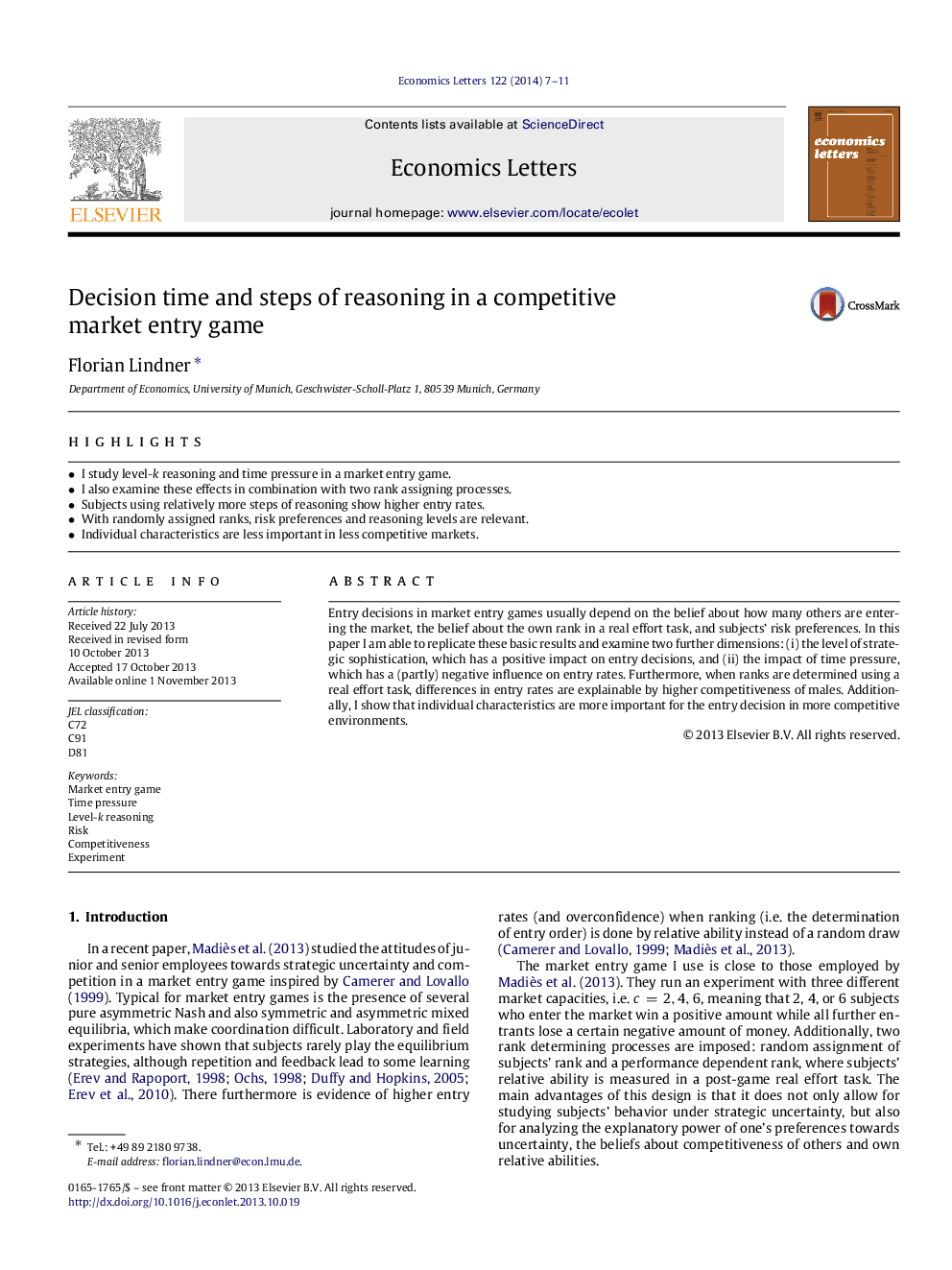| Article ID | Journal | Published Year | Pages | File Type |
|---|---|---|---|---|
| 5059138 | Economics Letters | 2014 | 5 Pages |
â¢I study level-k reasoning and time pressure in a market entry game.â¢I also examine these effects in combination with two rank assigning processes.â¢Subjects using relatively more steps of reasoning show higher entry rates.â¢With randomly assigned ranks, risk preferences and reasoning levels are relevant.â¢Individual characteristics are less important in less competitive markets.
Entry decisions in market entry games usually depend on the belief about how many others are entering the market, the belief about the own rank in a real effort task, and subjects' risk preferences. In this paper I am able to replicate these basic results and examine two further dimensions: (i) the level of strategic sophistication, which has a positive impact on entry decisions, and (ii) the impact of time pressure, which has a (partly) negative influence on entry rates. Furthermore, when ranks are determined using a real effort task, differences in entry rates are explainable by higher competitiveness of males. Additionally, I show that individual characteristics are more important for the entry decision in more competitive environments.
